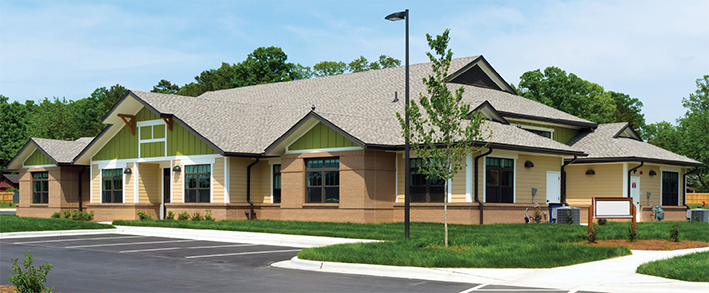11.6 Other Institutional Pharmacy Practice Settings
If serving a large enough patient population, skilled nursing facilities (SNFs), home healthcare agencies, long-term care facilities (LTCFs), and health maintenance organizations (HMOs) often have their own institutional in-house pharmacies with pharmacist and pharmacy technician staffing. These institutional pharmacies are run more like a hospital pharmacy than a community pharmacy. The HMOs often have both a community pharmacy and a hospital pharmacy among their facilities.
It is estimated that, by 2025, more than 20 percent of the country’s population will be over 65 years old. With the aging population, many retirement communities offer different levels of residential and nursing care on the same campus. These levels may include independent living, assisted living, SNFs, and LTCFs with memory care programs. Residents can transition to various levels of medical and nursing care as they age or progress in an illness. A variety of pharmacy services need to be available to serve these patients. Still, most of the medications are prepared off the premises and delivered to the institution.

Most assisted living homes contract with a community pharmacy. However, if it runs a large enough complex, an assisted living company may have its own pharmacy.
The other popular option to care for the nation’s aging population is home health care, where nursing and pharmaceutical services are delivered to the patient’s residence. These services, though, are not only for the aging. A patient of any age may be discharged from a hospital (or skilled nursing facility) and still need nursing care for rehabilitation, chronic disease, intravenous fluids and nutrition solutions, chemotherapy, antibiotic or pain infusions, or specialty high-cost drugs.
A home infusion pharmacy is a specialty pharmacy set up particularly to serve home healthcare dispensing. Many of the drugs are prepared in a cleanroom environment by certified pharmacy technicians and verified by the pharmacist, similar to a hospital cleanroom. The major difference between a hospital and an infusion pharmacy is that a technician is preparing a batch of sterile preparations for up to a week or longer in the home infusion pharmacy rather than for an emergency need or a 24-hour supply. ASHP recommends that a pharmacy technician working in either of these sterile compounding environments graduate from an accredited pharmacy technician training program and be certified by the Pharmacy Technician Certification Board (PTCB), as well as receiving specialized training in sterile compounding.
The home infusion pharmacies generally have contracts with many small home healthcare companies, and they need to abide by the Joint Commission and USP compounding standards as well the ASHP guidelines on home infusion pharmacy services, which are posted on the ASHP website. To access them, visit https://PharmPractice7e.ParadigmEducation.com/ASHPInfusion.